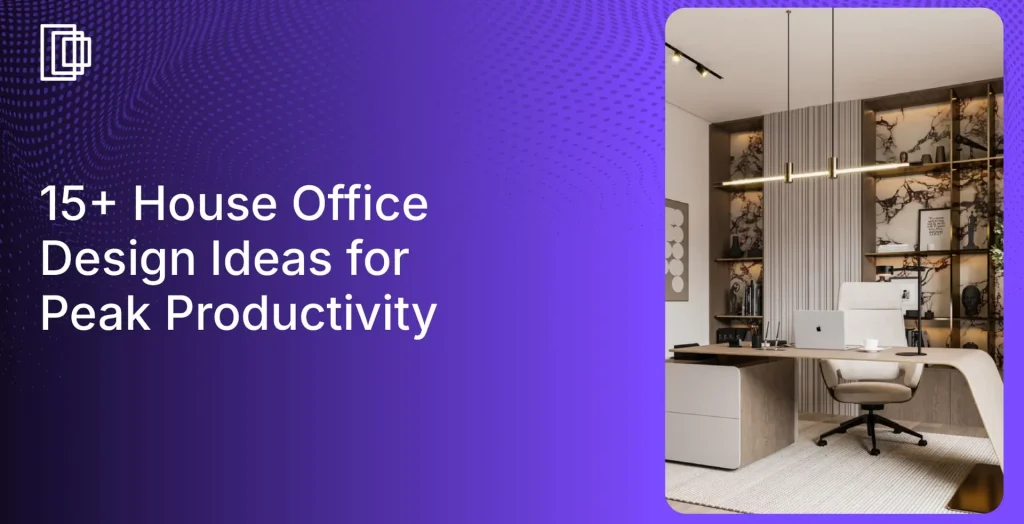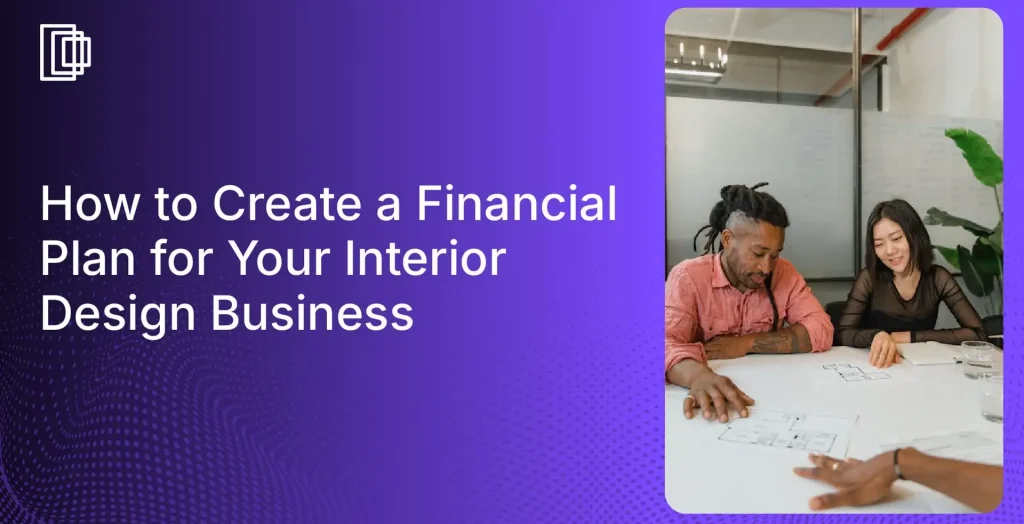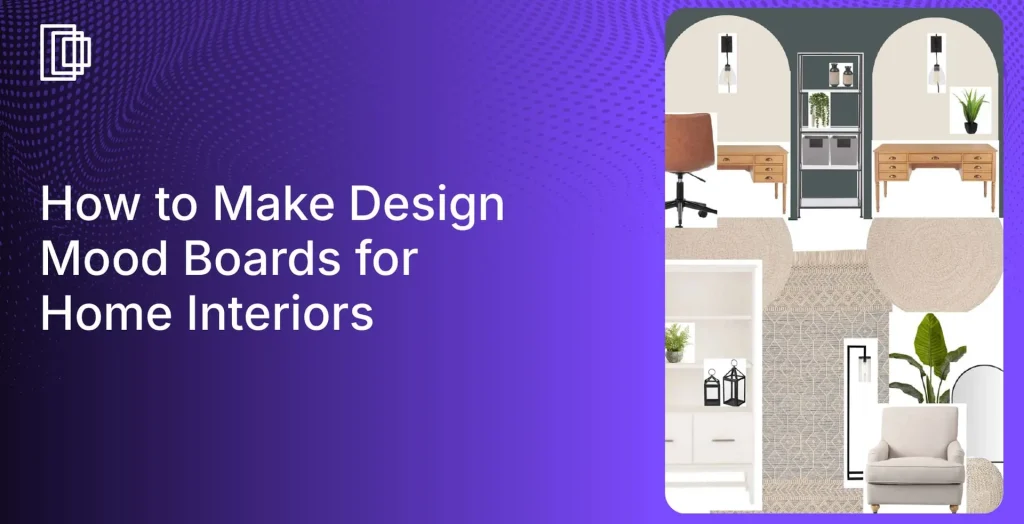Networking for Interior Designers
Once you’ve solidified your interior design business plan and service offerings the next question is obvious: how do you grow? How can you reliably source new clients that need your services and have the budget to pay? There are marketing tactics, both paid and free, that can help interior designers reach new audiences and successfully convert prospects into paying clients.
In this article, we’ll specifically review why networking is still (and will remain) one of the most powerful tools for generating new business. We’ll break down a proven networking strategy, where you should focus your time, and ten essential tips for more successful networking efforts.
Read also – 15 Problems Most Interior Design Business Faces
Image Credit: Money
Why Interior Designers Should Use Networking for Lead Generation?
Why is networking still preferred over digital advertisements or other forms of traditional marketing? While many businesses choose to invest in multiple marketing channels, the truth is simple: referrals are still one of the top ways that people choose service providers.
Testimonials and case studies are essential, but word-of-mouth conquers all in the world of sales and marketing. That’s why many marketers encourage businesses to make their clients more than buyers. Clients should become fans of your business, willingly telling others about how great your work is, how enjoyable the process was, and how happy they are with the outcome. In-person networking is one of the best ways to start these relationships, build brand awareness, and reinforce your reputation.
Read also – 12 Time Management Tips for Interior Designers
Image Credit: Entrepreneur
Understanding How to Network Effectively
As you begin networking, especially if you expand your efforts beyond just interior design groups, you will find that there are essentially two main types of people with whom you should network. The first type of contact is someone who meets and advises your potential clients but does not (usually) compete with you directly.
In other words, these are business people who are trusted resources for your potential clients and can offer them advice or make recommendations on specific service providers. But, these people likely will not offer the exact same services as you, or they might have a different area of expertise or pricing model that is a better fit for other kinds of clientele.
These contacts are typically called referral partners, and it’s smart to build as many of these relationships as possible because you can’t predict how often or how regularly these referral sources will pass your business.
If your business appears to be trending downward, schedule meetings with your referral partners to stay top of mind (meaning that they will be thinking about when next speaking with a client).
Below are 5 similar or complementary industries that can be great starting points for referral sources.
1. Interior designers
If they are too busy, have a different area of expertise, or have a different price point, other solo interior designers or interior design firms might be willing to send you business.
2. Interior decorators
Many interior decorators don’t offer some of the more substantive services provided by trained designers. Since the design work will involve decisions about layout and functionality that precede stylistic choices, interior designers can benefit from developing solid relationships with designers.
3. General contractors
If a potential client knows that they want to redo parts of their house but they don’t have plans or a vision, construction is still a long way off. General contractors or other skilled tradesmen often partner with interior designers to help their clients bring a realistic vision to life.
4. Furniture retailers
Upscale retailers can benefit hugely from developing relationships with interior designers that might recommend clients to their stores. If the retailer can establish trust with you, this can be a relationship that serves both parties well.
5. Realtors
Whether someone is tackling home improvement projects to increase their home value before selling or trying to envision a home’s potential before making an offer, realtors often speak with people who have big dreams for their homes. However, bringing those dreams to life might require the help of an expert interior designer.
So, how can you determine which industries, companies, and people might be a good fit as a source for referrals? When assembling your network of referral partners, the key is to analyze and understand why they would want to refer business to you, and with whom they consistently work.
If you can answer those questions, and if there is ample crossover with your target market, the chances are high that you can establish a profitable relationship as a referral partner.
The second type of contact you’ll meet while networking is actual clients. These are people who may need your exact services. These potential prospects will likely be at all different stages of their buying journey from just considering a remodel to actively sourcing an interior designer.
Later in this article, we’ll provide a few specific tips for how to effectively network with clients without being too forceful and scaring them away!
Read also – 12 Expert Tips To Get Clients for Interior Design Business
Image Credit: ASID
5 Professional Interior Design Associations You Should Consider Joining:
Now that you know why and how to practice successful networking, you need to figure out which design community groups and associations are valuable. Where should you be spending time to meet other design professionals? To get started, consider joining one of the larger national associations as a good starting point for your small business.
Plus, members of these associations might be willing to share valuable tips on how they conduct networking – this information could save you weeks or months of time spent in the wrong places.
1. The American Society of Interior Designers
ASID provides helpful resources and tools as well as continuing education opportunities for interior designers. Ultimately, ASID has a mission to bring designers together for more meaningful connections and conversations about design and how it impacts human lives. To that end, ASID often sponsors forums and other academic activities specifically created for interior designers.
2. The Interior Design Society
IDS helps interior design entrepreneurs get more connected and grow their businesses through mutual support, network, and training. Joining IDS is also a great way to increase your legitimacy and status by adding professionals that your prospective clients might look for when choosing a provider.
3. The International Furnishings and Design Association
IFDA is focused on empowering and supporting its members with critical connections for business success. IFDA provides extensive benefits and discounts to members, including savings on everything from health insurance to mobile phone plans.
4. International Interior Design Association
IIDA focuses specifically on the commercial interior design industry, and membership provides access to a globally distributed network of other professionals. Conferences, trade publications, and tuition reimbursement are just a few of the benefits offered by IIDA membership.
5. The Council for Interior Design Qualification
NCIDQ is the preeminent, authoritative body for certifying interior designers in architectural standards. Interior designers who work with architectural elements in their projects can earn NCIDQ certifications to increase their skill level, value, and industry knowledge.
Read also – 20 Client Presentation Tips for Interior Designers
Image Credit: Interior Design
10 Powerful Networking Tips for Interior Designers:
Networking is a straightforward strategy, but it requires a few key tactics to work well. Stick to the tips below and you’ll be well on your way to building a successful networking model for more sales and better-qualified leads.
1. Referral sources
Identify and know your key referral sources. Who are they, and what do they do? Where and how can you meet more of them? This will help you determine exactly which networking groups will be useful to attend. Remember that there are many types of networking groups, including local chambers of commerce, young professionals organizations, and Business Network International, to name a few.
2. Brief pitch
Have a brief pitch prepared to explain what you do and what types of clients are a good fit. You will inevitably answer those questions thousands of times while attending networking events. Your pitch should be short (i.e., less than 30 seconds) and memorable because you and other organization members might meet dozens of new contacts at once while at an event. Also, don’t forget marketing collateral like flyers, brochures, or business cards.
3. LinkedIn
Use LinkedIn to connect with potential referral sources. As COVID-19 temporarily shut down in-person networking events, online meetings skyrocketed in popularity and platforms like LinkedIn became even more valuable. LinkedIn is a great social media tool for all professionals because you can precisely research and connect with specific target audiences. Over time, this network will increase in value.
Plus, you can find other virtual events to attend through LinkedIn. This is particularly valuable if you don’t live in a design epicenter like New York or Los Angeles but still want to connect with the right industry partners.
4. Referral program
Develop a referral program that motivates connections in your network to send prospects your way. Your referral partners will be more incentivized to send you to work if they receive a financial reward. Incentive programs can be structured in many different ways.
Some people prefer to offer a 1-time payment that is worth a predetermined amount of the total contract. Others may pay out referral fees on a month-to-month basis, or provide their referral partners with a discount. Coordinate directly with your referral partners to determine what will work best for them.
5. Networking events
Don’t sell hard when you first meet someone. It’s well known that business owners attend networking events to meet potential clients or find new opportunities and connections. People expect to be pitched at some point, but not the first few times that they meet you. Instead, wait for them to ask for more information, or invite them to a 1-on-1 meeting outside of the event where you can talk more about your business. This is a more appropriate setting for explicit sales discussions.
6. Ask for referrals
Make sure that you actually ask for referrals! Some of your new connections may not be clear on what you expect to get out of a relationship with them, especially if you’re trying to connect during a social event like a happy hour.
While you may enjoy being around contacts that you see at networking events, it’s not necessarily a place to make new friends. Instead, be clear and direct that you’re interested in partnering with other referral sources to gain access to new business opportunities, and explicitly ask if they would be willing to refer you to business.
8. Be consistent
Be consistent in your efforts. Networking takes time, and it may feel slow when you first start attending new events or reaching out to new connections. However, it also takes others time to build trust and rapport with you. Continually showing up to networking opportunities and maintaining contact with referral partners will show that you’re genuinely interested and plan to be an active participant.
However, if you’ve invested time and resources in an organization for several months and there don’t seem to be any relevant opportunities, it might be worth looking elsewhere. Exercise discretion, but be willing to wait it out!
8. Follow-up
Follow-up after your meetings. It’s almost a guarantee that your new contacts will forget your name, face, and business a day or two after meeting. Send a personalized follow-up email with additional information about your business and, if appropriate, a request to meet in person and discuss a partnership in more detail.
9. Keep track
Keep track of who refers business to you and make sure to reciprocate their favor. People won’t want to work with you if you only take and never give back. This is especially important if you do payout referral fees to partners that bring you business.
10. Offer a discount
Offer a discount for certain referral partners or associations that have a high concentration of potential clients. For example, in exchange for some promotion, you could offer all members of the local chamber of commerce 20% off your services. This is valuable for the referring member or organization because they are able to make a reliable recommendation and build trust with the client.
Read also – Sales Tax for Interior Designers
Conclusion
As networking begins to pay off and your business grows to the next level, be prepared for increased workload with a powerful, effective, and intuitive design platform like Foyr Neo. Don’t lose clients due to long turnaround times and less-than-expected capabilities. Foyr Neo was built with designers in mind and offers essential features:
- Quickly upload or draw floor plans
- Drag and drop the addition of thousands of pre-modeled items like lighting elements, furniture, appliances, etc.
- Photo-realistic 4k renderings in minutes
- Real-time editing in 3D
This suite of features means that you can ditch your disconnected array of other programs, increase your productivity, and deliver designs faster to delight clients and keep projects moving forward.













